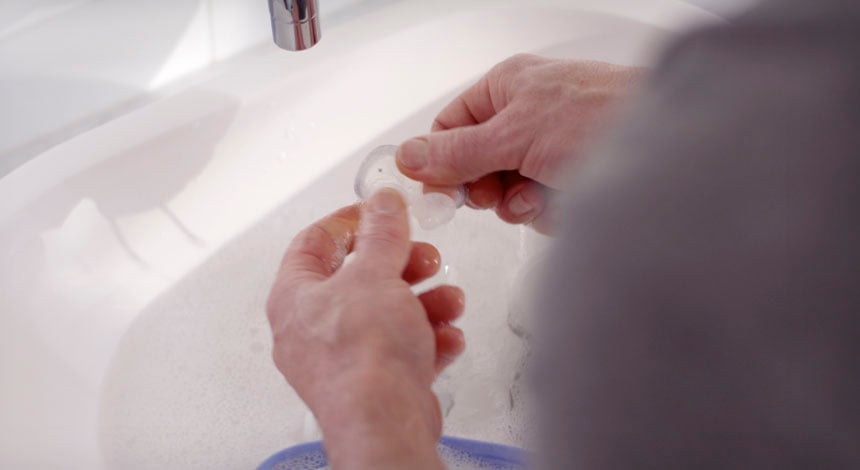Show me the way to...
txt
Show me the way to...

Maintaining and caring for your equipment is essential so that you can get the most out of your therapy.
To be able to deliver consistent, quality therapy, your device needs to be well maintained. A blocked air filter may impact on the pressure delivered to you. It's important to examine the air filter for holes or dust build-up on a monthly basis. Refer to your user guide for specific recommendations on how often you should maintain your device.
Maintaining your humidifier is important in order to achieve optimal therapy and prevent the build-up of deposits.
After each use, we recommend that the water tub should be washed out with a mild detergent and warm water. Then it should be thoroughly rinsed and dried, away from direct sunlight. The tub should also be checked once a month for wear and deterioration. If any component has cracked or become cloudy or pitted, the tub should be replaced.
Please note that this cleaning information is only a summary. For more detailed information, please refer to your product user guide.
It's important to replace your mask regularly to ensure that you maintain comfortable, reliable therapy every night.
Some indications that it might be time to replace your mask (or parts of it) are if you:
This webpage content is intended for Healthcare Professionals only, not for general public.
The content available through this website is for informational and educational purposes only and is not a substitute for the professional judgment of a health care professional in diagnosing and treating patients. ResMed does not give medical advice, nor does it provide medical or diagnostic services. Always seek the advice of a physician or other qualified health provider with any questions you may have regarding a medical condition. Never disregard professional medical advice or delay in seeking it because of something you have seen or read on this Website. For more information, please refer to our Terms of Use.
© ResMed. All rights reserved.